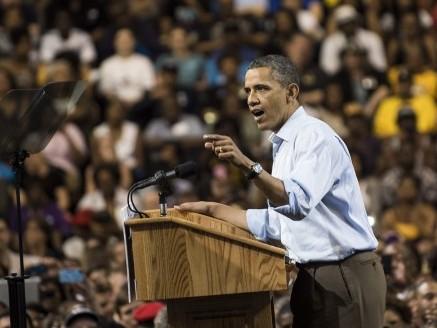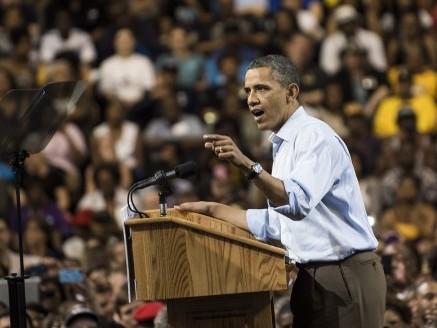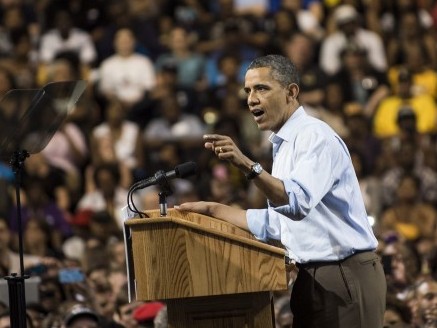A slowdown in U.S. job growth sent Wall Street tumbling Friday and undercut the economic momentum President Barack Obama was hoping to bring to the official launch of his re-election campaign over the weekend.
The U.S Labor Department said Friday just 115,000 new jobs were created in April, the lowest in six months. Although unemployment figures fell slightly, from 8.2 percent in March to 8.1 percent in April, , the fall was not due to more people gaining jobs but credited instead to fewer people looking for work. The proportion of adults either working or actively seeking work fell to 63.6 percent, its lowest in 30 years according to department data.
The news came as President Obama officially launched his 2012 re-election campaign, holding large rallies in Virginia and Ohio.
Without referring specifically to the job slowdown Obama told supporters his campaign was still about hope and change; but acknowledged that for many that hope had been dashed by hard economic times, noting that 3 million jobs had been lost before he took office.
“It was tough. But I tell you what, Ohio. The American people are tougher,” he said.
He pointed to the strong job growth in previous months but acknowledged that the economic recovery would take time and there was much more to do.
“Are we satisfied? Of course not. Too many of our friends and family are still out there looking for work,” he said.






